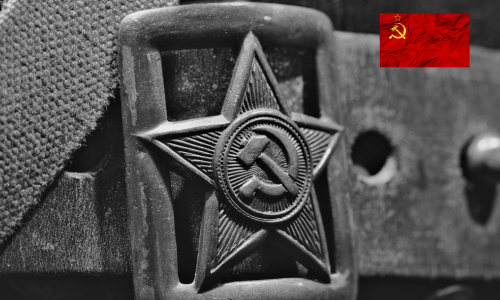
Easy Buy Soviet Military Uniform Belt: A Must-Have 1 or 2 for History Buffs
If you’re a history buff or a collector, a genuine Soviet military uniform belt instantly adds credibility and charm to your collection. This belt isn’t just a strap; it’s a piece of 20th-century history.
In this article, you’ll dive into its origins, learn how to spot authentic pieces, discover care tips, and find communities to share your passion. Let’s get started.
Explore Soviet military uniform belt history.
The story of this iconic strap starts long before World War II. Early designs borrowed from Imperial Russian models, then evolved to meet the demands of mechanized warfare and mass production.
Early development
Tsarist Russia set the template with thick cowhide belts and straightforward brass buckles. Artisans stamped unit marks by hand, making each piece unique.
World War II era
When the Red Army mobilized, factories switched to blackened leather and added enamel star details on the buckle. Durability under harsh conditions was the top priority.
Cold War models
Postwar models shifted to olive canvas and synthetic leather. Buckles gained chrome finishes, often bearing the hammer and sickle emblem. Production codes on the back reveal manufacturing dates.
Recognize key features of Soviet military belts.
Knowing what to look for helps you separate originals from reproductions. Focus on material, buckle design, and size patterns.
Leather and fabric
Original belts are made from top-grain cowhide or heavy canvas blends. Synthetic substitutes emerged in later decades, featuring a subtly plastic feel. Check the texture under a bright light.
| Period | Material | Buckle detail |
|---|---|---|
| Pre-1917 | Cowhide leather | Simple brass |
| World War II (1941-45) | Blackened leather | Red star enamel |
| Early Cold War (1945-60) | Olive canvas | Chrome emblem, hammer, and sickle |
| Late Cold War (1970s-80s) | Synthetic leather | Plain metal, factory code |
Buckle markings
- Factory stamp on the back, often in Cyrillic
- Serial or batch numbers below the emblem
- Clear enamel fill on genuine stars, no bubbles
Size and fit
Most Soviet military uniform belts measure approximately 1.5 inches in width, with five to six evenly spaced holes. Reproductions often cut corners on hole spacing, so measure carefully. What sets an original apart from a knockoff?
Find authentic soviet military uniform belt.
Tracking down a genuine example takes patience, but it’s worth the effort.
Online auctions
Websites like eBay or specialist auction houses sometimes list full soviet army uniform sets that include the Soviet military belt. Review seller ratings and request detailed photos before bidding.
Reputable dealers
Vintage militaria stores and major auction platforms often verify the authenticity of their items. Ask for provenance or a letter of authenticity when possible.
Museum deaccessions
Some museums occasionally sell duplicate items through deaccession programs. These pieces often come with solid documentation, making this a reliable route.
Where can you track down a genuine example?
Preserve your belt
Once you own a belt, proper care keeps it looking sharp for decades.
Cleaning guidelines
- Wipe leather gently with a damp cloth, avoiding soaking
- Use a mild saddle soap for stubborn grime
- Dry naturally, never near heat sources
Proper storage
Store belts flat or rolled loosely in acid-free paper. Keep them away from direct sunlight and humid basements.
Display ideas
- Hang a simple pegboard in your study
- Frame alongside other insignia in a shadow box
- Mount it above a desk with museum-style clips
Want to keep yours looking sharp for decades?
Join collector communities
You don’t have to go it alone; there’s a whole network of fellow enthusiasts out there.
Online forums
Sites like Reddit’s r/Militariacollecting and specialist Discord channels let you swap tips, photos, and sourcing leads.
Local clubs
Veteran groups and history societies often host swap meets or show-and-tell nights. You’ll meet people who’ve handled thousands of pieces.
Museum events
Keep an eye on open days and lectures at military museums. Curators sometimes share insights on identifying manufacturers and production periods.
Looking to swap stories and tips with fellow enthusiasts?
Key takeaways
- A genuine soviet military uniform belt reflects shifts in design from Tsarist Russia to the Cold War.
- Look for top-grain leather, correct buckle emblems, and a precise hole pattern.s
- Hunt originals through auctions, dealers, or museum deaccessions
- Clean with mild soap, store in acid-free paper, and display with care
- Join online and local groups to deepen your knowledge
Ready to enhance your collection with this classic piece of history? Share your favorite belt find in the comments below or connect with fellow collectors online.
You can find a soviet military belt.

